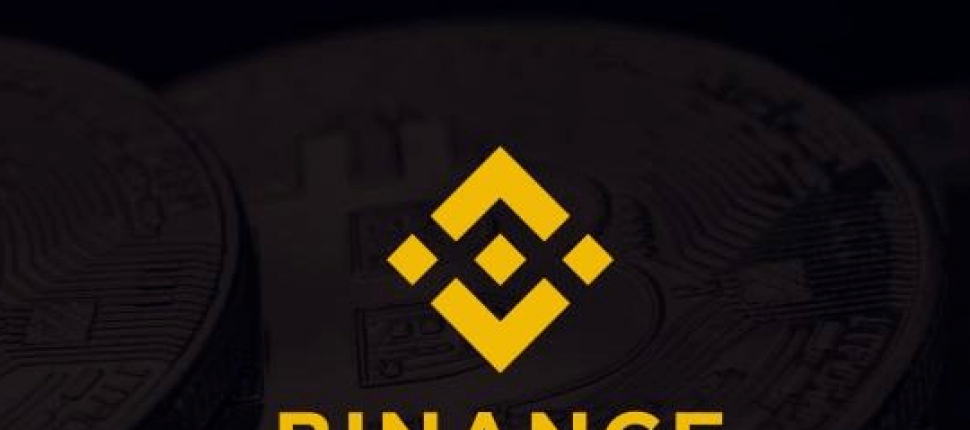- >Best Crypto Exchanges
- >Gemini vs Binance: What’s the Superior Crypto Exchange?
Gemini Quick Look
Gemini has become one of the oldest names in the cryptocurrency industry, as the company was founded all the way back in 2014. It was created by Cameron and Tyler Winklevoss, who before their involvement in bitcoin were best known for their interactions with Mark Zuckerburg around the time he founded Facebook.
The exchange launched in 2015 and is one of the top bitcoin and crypto exchanges in the United States base on a variety of metrics, most importantly trading volume. The exchange is as regulatory compliant as it gets for the crypto industry, and it operates in all 50 U.S. states. Like many other crypto exchanges, Gemini uses a two-faced approach when it comes to their user interface based on the level of trading expertise of the individual user.
- A trusted, and secure cryptocurrency exchange
- Gemini is a New York trust company regulated by the New York State Department of Financial Services (NYSDFS).
- Gemini Derivatives offers customers a trusted venue to trade derivatives.
- The world’s first SOC 1 Type 2 and SOC 2 Type 2 certified crypto exchange and custodian
- Multiple product offerings: The Gemini Credit Card®, Gemini Staking*, Gemini ActiveTrader, Gemini Derivatives**
Beginner Friendliness
Both Gemini and Binance are not necessarily focused on beginners who are purchasing their first crypto assets. There are definitely versions of each trading app that allow the user to purchase bitcoin simply and easily; however, there are also many features of these exchanges that are more targeted at advanced traders. In other words, these aren’t simple brokerage-esque platforms like Coinbase.
That said, both Gemini and Binance can be a solid option for newcomers through the use of their mobile apps. Advanced traders tend to sit down at a laptop or desktop to do their trading, so the mobile apps for these sorts of crypto exchanges tend to be targeted towards a more general audience that just wants to get some exposure to the crypto market. For those located in the United States, there won’t be much of a difference between the level of simplicity offered by these exchanges’ apps; however, buying your first cryptocurrencies will be a bit easier on Binance around the rest of the world because there is a less strict user verification process that can help speed things up.
Trust & Security
When it comes to trust and security, there is no comparing Binance and Gemini. Gemini is the clear winner here, and it isn’t even close. While Binance tends to try to skirt around various financial regulations by not having a single jurisdiction that they call home, Gemini is regulated as a Limited Liability Trust Company under New York Banking law. The Winklevoss twins have made it clear on many separate occasions that they want to work with regulators to create a safe and secure environment for cryptocurrency users, while Binance was allowing Americans to trade on their platform without any sort of Know Your Customer (KYC) or anti-money laundering (AML) restrictions on these users.
Although Binance has started to change their tune when it comes to regulatory compliance with the launch of their Binance US exchange in the United States, it still has a long way to go to be compared with the likes of Gemini. That said, Binance has also hired former U.S. Acting Comptroller of the Currency Brian Brooks as the Binance US CEO.
In addition to besting Binance in the area of regulatory compliance, Gemini also has Binance beat when it comes to security. The Gemini crypto exchange has never been hacked or faced a serious security incident of any kind. Additionally, the digital assets that Gemini holds in hot wallets on behalf of their customers are insured against a variety of different attack vectors such as theft by hackers.
On the other hand, Binance has faced multiple security incidents, including a 2019 hack that led to the theft of $40 million worth of user funds. That said, Binance has their own process for dealing with these sorts of incidents, which is known as the Binance Secure Asset Fund for Users (SAFU). No users actually lost money in the 2019 hack due to this method of self insurance. In terms of additional security measures on individual accounts, both Binance and Gemini offer enhanced security features like two-factor authentication.
Fees
Fees are a key area where Binance has been able to shine brighter than other crypto exchanges over the years, and the low cost of trading on Binance has been a key reason behind the platform’s tremendous growth over the past few years. It’s almost impossible to find lower fees anywhere else in the crypto exchange industry, as the makers and takers in the various Binance markets both pay 0.1% on their trades. These fees can also be lower for BNB users, who get a discount on their Binance trading experience. Binance trading fees also decline as a user’s monthly trading volume increases.
For Gemini, fees start at a higher rate at 0.35% on their advanced trading platform. These is rather high by industry standards, and it’s obviously going to be more expensive to do your trading on Gemini rather than Binance. That said, many Gemini traders are willing to pay these additional costs due to the high standards the platform has in terms of security and regulatory compliance.
It should be noted that fees on both Binance and Gemini increase when there is more convenience involved with the purchase method. For example, Binance’s option for automatically dollar-cost averaging crypto purchases over time comes with a 0.5% fee instead of the normal 0.1%.
Sign-Up Process
Signing up for a Gemini account is similar to signing up for a cryptocurrency account on any exchange that offers their services to those residing in the United States. As mentioned previously, Gemini has extremely high standards when it comes to regulatory compliance, which means they’re not interested in cutting any corners when it comes to KYC and AML regulations.
To start the process of creating a Gemini account, you’ll need to click the “Sign Up” button on the homepage of the platform. After that, you will be asked to provide some basic information in the form of your name, email, and a new password.
You will then need to activate your account via the code that is sent to your email address; however, you will not be able to actually trade on Gemini until you also provide more personal information about yourself such as your social security number and address. Additionally, you’ll need to provide documents like a copy of your driver’s license and a utility bill to complete the full verification of your account.
For Americans, signing up for Binance US will look quite similar to signing up for a Gemini account. That said, things work differently on the international Binance exchange. On that version of the platform, you only need to provide an email address and a password to create an account.
You can even start trading cryptocurrencies that you deposit to Binance without going through any other sort of identity verification, but the problem is you will be limited to withdrawing up to 2 bitcoin per day with an unverified account. There is a long history of crypto exchanges locking the funds of unverified users’ accounts and demanding identity verification if suspicious activity is found with a particular user, so keep that in mind before you try to trade without going through any sort of KYC process on a centralized, custodial exchange.
Available Cryptocurrencies
It’s extremely difficult for any crypto exchange to compete with Binance when it comes to the availability of different crypto assets on the platform. If there is a crypto token with any sort of recognition at all, you can be sure that it will be available for trade on Binance.
Gemini is a bit more conservative when it comes to the listing of crypto assets for trade, and they originally launched as a bitcoin-only exchange. Exchanges that take a much friendlier stance towards the regulators tend to list fewer tokens, as they do not want to rustle any feathers with crypto assets that turn out to be nothing more than simple pump and dump schemes.
There are hundreds of cryptocurrencies available for trade on Binance and a little over 30 traded on Gemini. Here are some of the more popular crypto assets traded on both platforms:
- Bitcoin
- Ether
- Litecoin
- Bitcoin Cash
- Bitcoin
- Ethereum
- Litecoin
- Bitcoin Cash
- Zcash
- Chainlink
- Basic Attention Token
- Compound
- Curve Finance
- Maker DAO
- Storj
- Yearn Finance
- Filecoin
- Dogecoin
- Sushiswap
Standout Features
The standout features for Gemini have to do with features that are extremely important for high net worth individuals and institutions.
Gemini works closely with regulators to make sure that there is never any sort of issue when it comes to illicit financial activity, as the Winklevoss twins are trying to build a trusted brand that will be able to stand the test of time.
Security is another key area of focus for the platform, as Gemini knows that it would be difficult to get wealthy individuals who usually operate in the traditional financial world onto their platform if there was ever a serious security incident.
For those based in the United States, the ability to instantly make a deposit from a bank account and start trading right away is also a huge plus. Finally, the fact that Gemini is expected to release the first credit card with a bitcoin-denominated rewards program will undoubtedly onboard many new users to the platform.
For Binance, the standout features are more of a pure crypto play. The exchange lists a tremendous amount of different crypto assets for trade, with hundreds of trading pairs to choose from on the platform. Additionally, the fees on the trades between those crypto assets are lower than what you’ll find just about anywhere else.
Binance has also started to push itself into the more decentralized realm of crypto itself, as the Binance Smart Chain has become a serious competitor to other smart contracts platforms like Ethereum. Additionally, the BNB token can be used to get discounted trading fees. Compared to Gemini specifically, a key feature that Binance offers is margin trading. Finally, it’s important to remember that this is the largest exchange in the world, which means traders will usually find that their preferred trading pairs have more liquidity on Binance than anywhere else.
Conclusion: Gemini for Americans, Binance for Everyone Else
It would not be correct to say that there is an obvious choice between Binance and Gemini that will be the right option for every crypto trader in the world. Different situations call for different solutions, and whether Binance or Gemini is the right exchange for you will depend on a variety of factors.
At the end of the day, if you’re based in the United States, then Gemini is probably going to be a better option for you due to the specific features that are targeted at Americans. For those outside the United States the features available with Binance will be far too much to ignore. Binance’s low fees, margin trading, large number of crypto trading pairs, proprietary token offering, high level of liquidity, and limited KYC requirements are the reasons this is the largest crypto exchange in the world.









